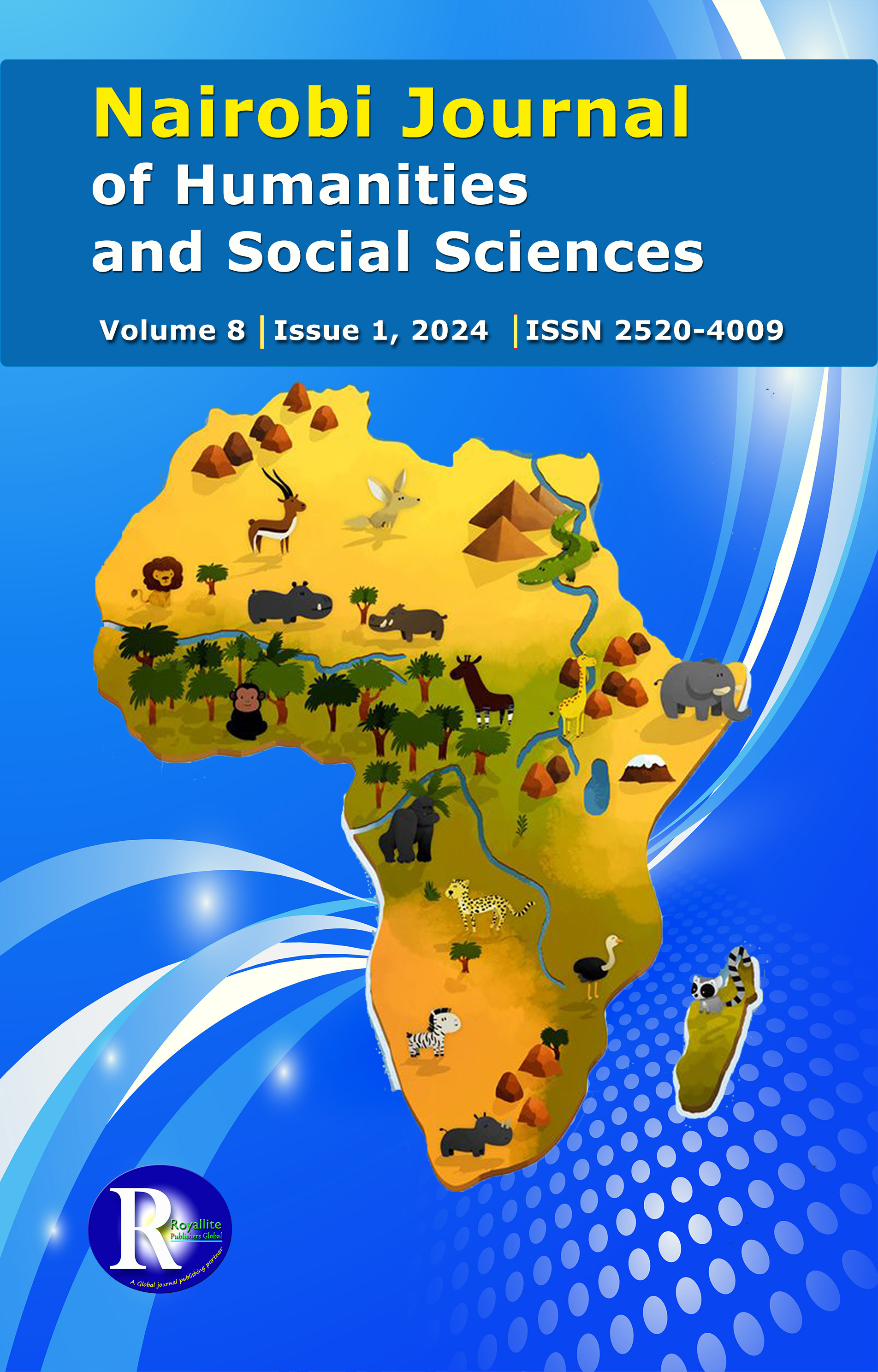Uhusiano wa Lugha na Tabaka: Uchanganuzi wa Riwaya za Kuli na Pendo la Karaha
Main Article Content
Abstract
Makala hii inachunguza uhusiano uliopo kati ya lugha na tabaka kwa mujibu wa riwaya za Kuli (Shafi, 1979) na Pendo la Karaha (Habwe, 2014). Lugha ina jukumu muhimu katika jamii ambalo ni kufanikisha mawasiliano; hutumika kuwasilisha habari na hisia za watu. Kando na kuwa chombo cha mawasiliano, lugha hutambulisha: eneo atokalo mtu, cheo chake, na kadhalika. Vilevile, lugha huonyesha mahusiano ni ya aina gani baina ya wazungumzaji, jinsia na tabaka la mzungumzaji. Jamii tuliyomo ina mfumo wa kiuchumi ambao umegawa watu katika matabaka tofauti kulingana na uwezo wao wa kumiliki na kudhibiti njia za uzalishaji mali. Matabaka haya hayakosi kutangamana katika mchakato wa kutafuta riziki. Yanapotangamana, sharti lugha itumike. Kwa hivyo, katika makala hii, tutadadisi aina ya mazungumzo ya mtu ambayo humweka ama katika tabaka la juu au la chini.
Downloads
Article Details

This work is licensed under a Creative Commons Attribution-NonCommercial-ShareAlike 4.0 International License.
This open-access article is distributed under a Creative Commons Attribution (CC-BY-NC-SA) license.
You are free to: Share — copy and redistribute the material in any medium or format.
Adapt — remix, transform, and build upon the material for any purpose, even commercially. The licensor cannot revoke these freedoms as long as you follow the license terms.
Under the following terms:
Attribution — You must give appropriate credit, provide a link to the license, and indicate if changes were made. You may do so in any reasonable manner, but not in any way that suggests the licensor endorses you or your use.
No additional restrictions You may not apply legal terms or technological measures that legally restrict others from doing anything the license permits.
How to Cite
References
Adam, S. (1979). Kuli. Dar es Salaam: Longhorn Publishers.
Bernstein, B. (1971). Class, Codes and Control: Theoretical Studies Towards a Sociology of Language. New York: Routledge.
Bourdieu, P. (1986). The Forms of Capital. Handbook of Theory and Research for the Sociology of Education. New York: Greenwood Press.
Bourdieu, P. (1991). Language and Symbolic Power. Cambridge, Massachusetts: Harvard University Press
Cameron, D. (1995). Verbal Hygiene. New York: Routledge.
Coulmas, F. (2013) Sociolinguistics: The Study of Speakers’ Choices. United Kingdom: Cambridge University Press.
Habwe, J. (2014). Pendo la Karaha. Nairobi: Moran Publishers.
Labov, W. (1966). The Social Stratification of English in New York City. Washington, DC: Center for Applied Linguistics
Lippi-Green, R. (2012). English with an Accent: Language, Ideology, and Discrimination in the United States. New York: Routledge.
Luthans, F. (2019). Organizational Behavior: An Evidence-Based Approach. (13th Edition). New York: McGraw-Hill Education.
McGregor, W. (2009) Linguistics: An Introduction. Great Britain: Bloomsburry Publishing Plc
Odetola, O and Ademola, A. (1987). Sociology: An Introductory African Text. Hong Kong: Macmillan Publishers.
Robbins, P & Judge, A. (2019). Essentials of Organizational Behavior (14th Edition). New York: Pearson
Vivian, C & Newson, M. (2007). Chomsky’s Universal Grammar: An Introduction. Hoboken: Blackwell Publishing.
Wardhaugh, R. (1997). An Introduction to Sociolinguistics. Great Britain: Blackwell Publishers.






